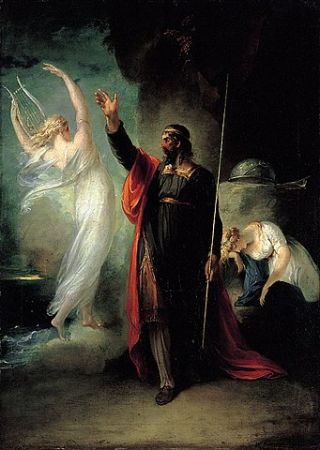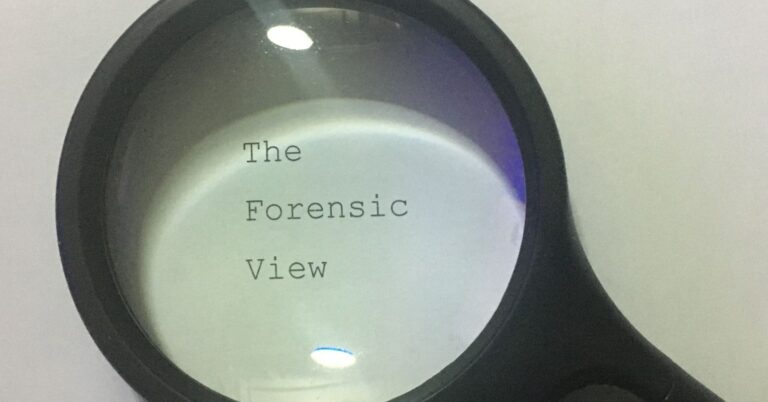At times, it seems like tech has taken over our nation’s classrooms and is determining how virtually everything is taught. Many in the sciences and other academic disciplines seem to accept and even applaud this transformation. In certain academic disciplines, including my fields of literary studies and creative writing, AI is greeted by many with the same apprehension as the mushroom cloud that hovered above Los Alamos, New Mexico, in 1945.
The decline of the humanities can be seen just about everywhere in our educational systems. Entire departments of humanities have been closed on some campuses, and liberal arts programs are often the first to be cut during times of financial exigency. The proliferation of business majors accounts for some of these cuts, but many businesses are discovering that their majors are lacking in critical skills like analytical and creative thinking. Still, business majors have become the dominant majors on many campuses. Meanwhile, humanities majors have declined significantly in number.
The humanities were in many ways the legacies of Renaissance artists and writers like Shakespeare and Michelangelo. They created a competing vision of human destiny—one that celebrated the human form and often stood in opposition to traditional religious dogmas. Some of these artists, especially Da Vinci and Michelangelo, were both artists and scientists. They incorporated scientific research into their art works, but their art was their primary, not their secondary interest.
Today, many of us in the humanities cringe when we see the AI marketing commercials play across our television or computer screens. It seems they are always narrated by a smooth, comforting voice describing a future of infinite possibilities once AI is fully in control. Often the backgrounds for these commercials are similarly soothing landscapes and happily smiling students or enthusiastic adults who have just mastered some essential AI function.
In the humanities, this tech-dominated future is often viewed quite differently. We see it more in the context of Shakespeare’s “The Tempest” (1611) or Aldous Huxley’s “Brave New World” (1932). In “The Tempest,” Shakespeare warns of a future in which the world’s masses gradually lose their humanity and are vulnerable to the forces that have sought to enslave the human race throughout history. Huxley takes this vision one step further and envisions an even more dire view of humanity’s future. He predicts that the tech giants of his time will use their powers to create a worldwide authoritarian future controlled by a single government. In this world, free thinking will virtually disappear, leaving behind various forms of thought control, uniform behavior, and weakened imaginative powers.
Many of us in our nation’s classrooms often see something very similar in our electronically driven educational system. We see cellphones hidden in folds of students’ clothing, folders, behind books, or any other hiding place where they can be easily retrieved when teachers or professors are preoccupied elsewhere in the classroom. We carry home with us pictures of entire classrooms of young people pulling out their cellphones and staring intently at the screens whenever there is a break. These students often look to us like hypnotized subjects who are being programmed to perform some bizarre task at the bidding of whatever powers are lurking in the inner workings of their cellphones. We see too many young minds that appear to have given up the power of deep and reflective thought to every new tech invention that comes on the market.
When I started writing the first novel in a planned trilogy 12 years ago, I wasn’t thinking seriously about a tech-dominated world. Yet, tech gradually became a major part of the first two novels, which I titled The Accountant’s Apprentice and The Return of the Fifth Horseman. The plot eventually involves a young homeless girl in a rescue shelter who has savant-quality artistic skills. The director of the shelter recognizes her extraordinary talent when she creates crayon drawings of the homeless residents. He eventually concludes that the young girl appears to be a direct descendant of the great Renaissance masters like Michelangelo and Shakespeare.

In Shakespeare’s “The Tempest,” Prospero and Ariel demonstrate the power of art while Miranda sleeps.
Source: Prospero and Ariel (1797), William Hamilton/Wikimedia Commons
In time, her reputation transcends the small world of the rescue shelter. For reasons no one can understand, she becomes the target of those who wish her harm for creating art based on life in a rescue mission. She has a creative, inquisitive mind that apparently threatens the more uniformly controlled thinking patterns in the modern world.
The plot seemed dystopian when I first started working on the trilogy. Now it seems less dystopian and more like a chronicle of our times.
Tech can’t be blamed, of course, for these attacks on the arts and literature that seem to emanate from some dark side of the human soul. However, tech has created many of the dominant forces driving contemporary American culture and education—and they are not all good for our society. It also seems that many of these devices and innovations promote the most superficial human interactions and elevate the mundane above truly meaningful relationships.
I realize that much of what we remember from the past is not as good as we thought it was. Still, there was a time before tech when there were more opportunities to be alone with our thoughts to contemplate real learning and thinking. Those thoughts could build on one another and often reveal deeper insights into our own private worlds. Unfortunately, those opportunities have been replaced by push-button, robotic, electronically-driven forms of communication and thinking.
Albert Einstein famously said, “Imagination is more important than knowledge. Knowledge is limited. Imagination encircles the world.” While Einstein was certainly not denying the importance of “knowledge,” he was emphasizing the vital role of “imagination” in all human understanding. He believed the power of the human imagination must be fostered and developed in any educational system. This is precisely what the humanities encourage. However, the modern tech-dominated classroom, which makes students overly and immediately dependent on technology, often works against this very goal.
Too many students are looking for the answers in the tech world that dominates their lives, but they are often wary of looking for those answers using their own cognitive skills. To many of us in the humanities, the “right answer,” if there even is one, is less important than the imaginative exercise of grappling with the problem. That is what makes the humanities unique—and what we are in danger of losing to the new educational models tech is creating for virtually all academic disciplines. Modern AI-generated writing software, especially, is a “copier” of the work of other writers, not a tool to help students develop their own imaginative writing and interpretative skills.
There are, fortunately, stirrings among students themselves that there may be too much tech-inspired learning in our nation’s classrooms. Lily Anderson, a student writing for the University of San Diego Vista, recently commented in her op-ed, “Not only do tech-free classes foster more energy and participation, but they are also more beneficial for learning.” She adds, “In a society that is so used to the constant prevalence of technology, removing it is a refreshing and welcome change.”
Maybe these are the voices that will really lead us in another direction than the “brave new world” both Shakespeare and Huxley encouraged us to avoid.


















+ There are no comments
Add yours